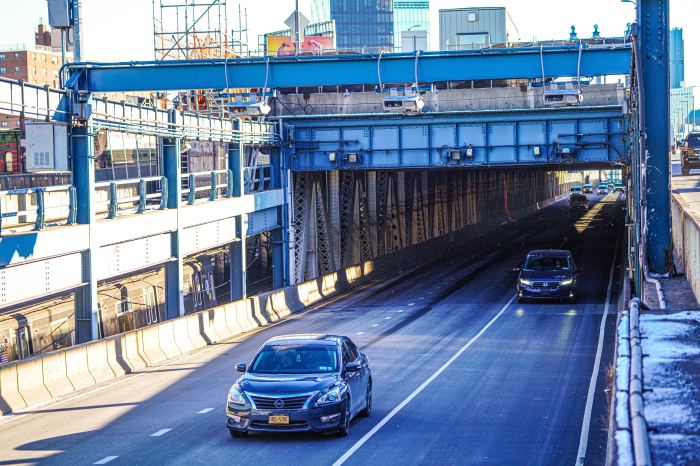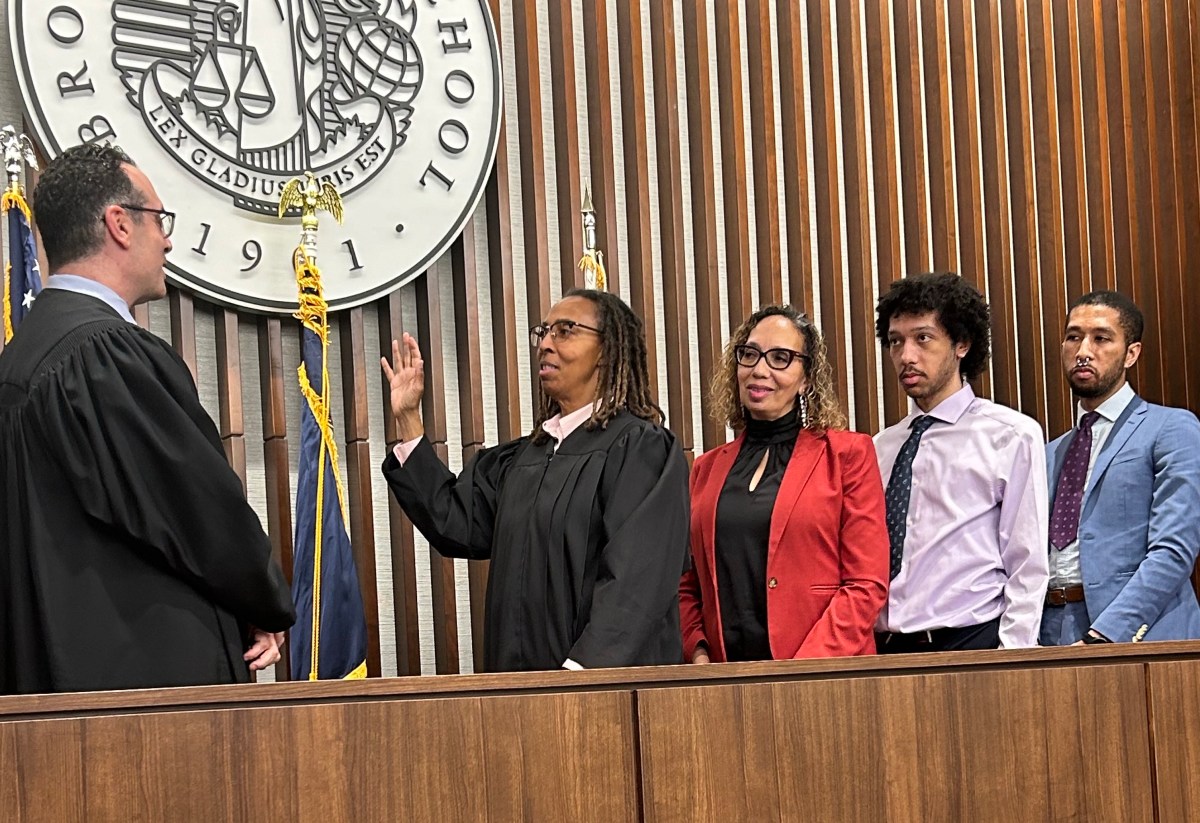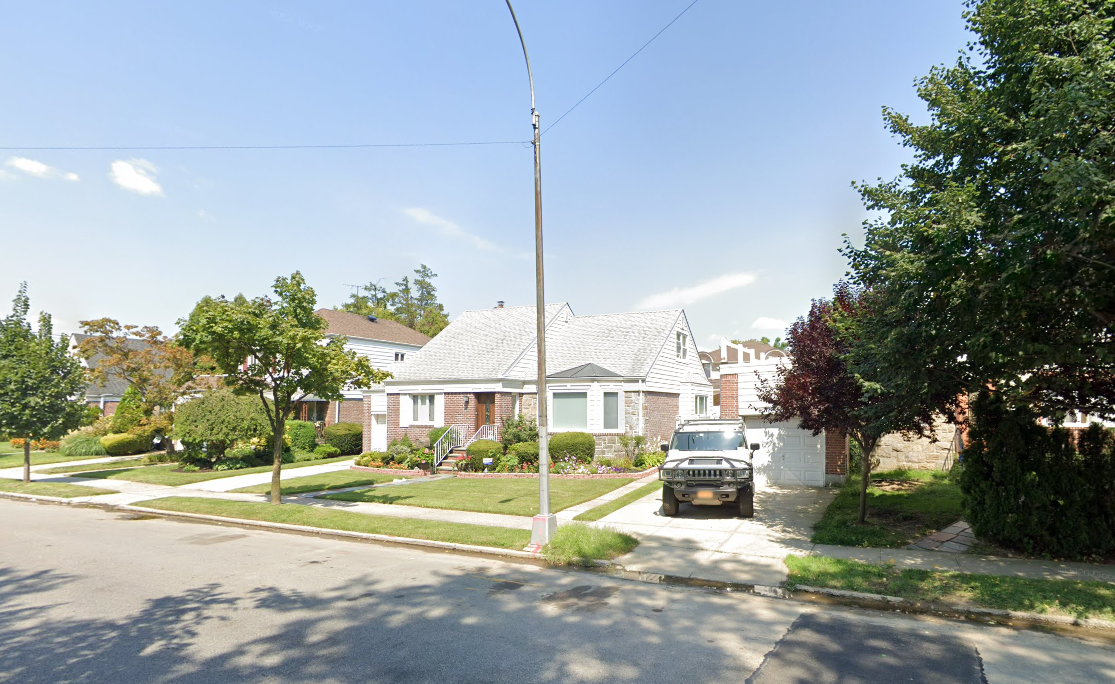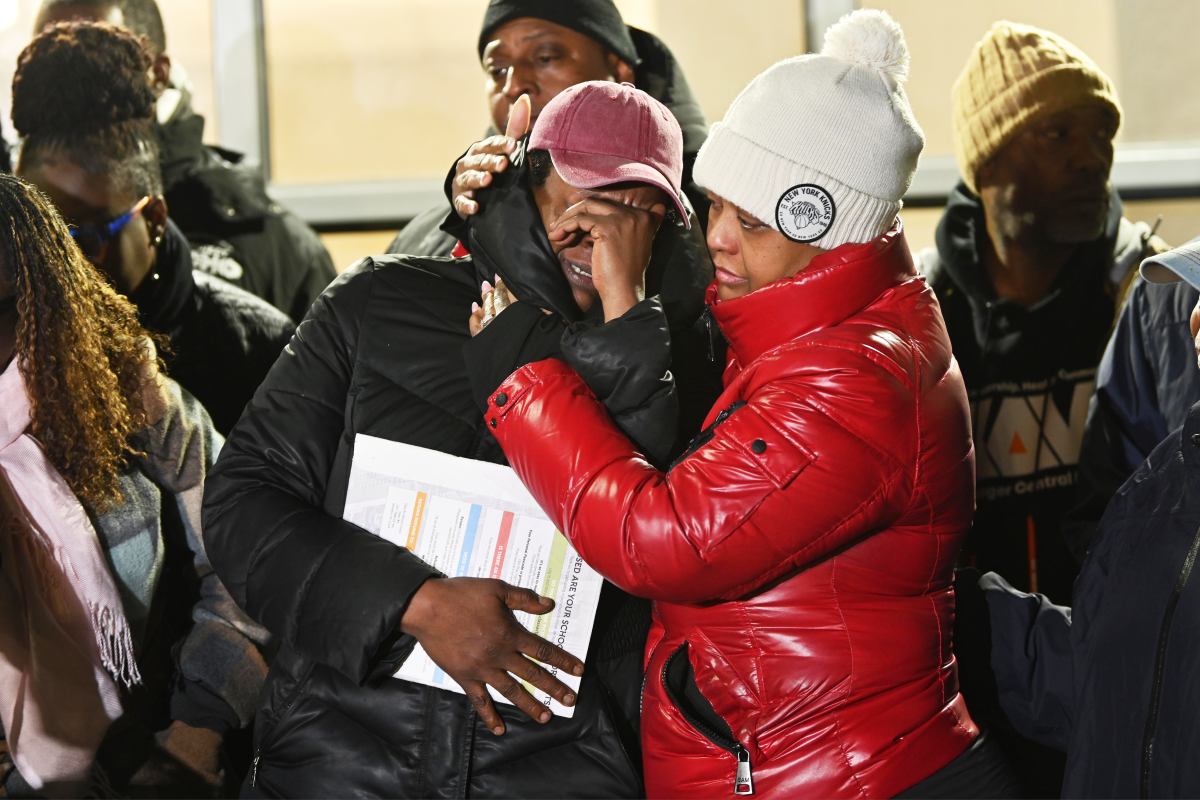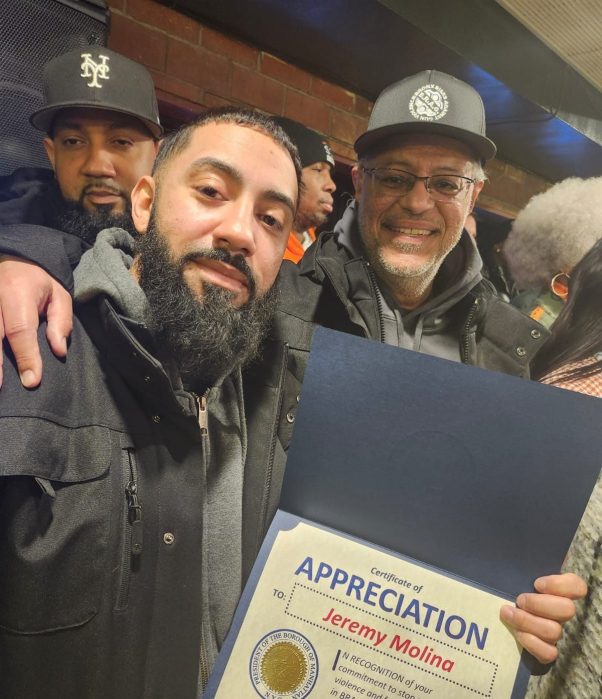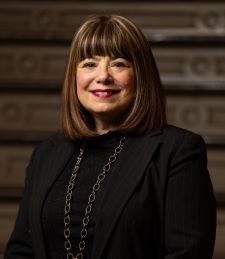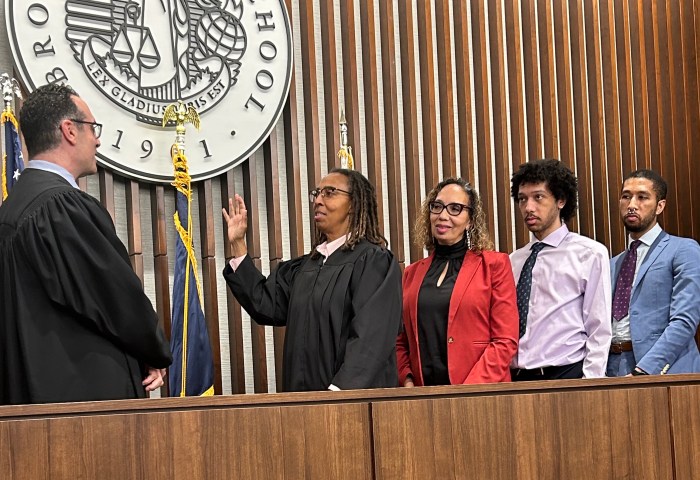
The city will launch its plans for a 14th Street busway pilot on Monday, Aug. 12, after a judge on Tuesday lifted a temporary injunction on the project.
The busway had been delayed for more than a month after block associations along the street filed a last-minute lawsuit to block the project launch on July 1, arguing that the city failed to complete the proper environmental review for the work.
State Supreme Court Judge Eileen Rakower struck down a petition to halt the busway Tuesday after she found the city Department of Transportation had given a “hard look” at the traffic, health and safety impacts of the project and that the work was within the city’s routine traffic management.
“This is all within DOT’s expertise and these are the considerations that they have looked at and analyzed,” Rakower said.
“It wasn’t arbitrary and capricious. It wasn’t outside of their purview,” the judge added.
Whether or not the project was “routine” was key in determining if the city had to halt its efforts to conduct a lengthy environmental review.
The busway will create a primarily bus and truck corridor, with added pedestrian space, along the busy and dangerous 14th Street. Private through-traffic will be banned on the block between Third and Ninth avenues as part of a new street design meant to help speed up buses during the L train’s Canarsie tunnel reconstruction. The restrictions will be in place between 6 a.m. and 10 p.m.
During an 18-month pilot of the plan, 14th Street will consist of four lanes, two in each direction: The center lanes will be dedicated to bus and truck traffic, while the outer curbside lanes will be reserved for truck-loading and local traffic looking to make pickups, drop-offs or to gain access to garages along the block.
"We prevailed in our legal fight to speed up buses on 14th Street! With this hurdle clear, [the DOT] is moving ahead with final roadwork so we can get New Yorkers moving on one of the city’s busiest thoroughfares," Mayor Bill de Blasio tweeted. "Let’s get this DONE!"
The plaintiffs against the busway, led by attorney Arthur Shwartz, argued that the plan was far from routine traffic management because of the impact the project would have on nearby blocks, which the city expects to absorb the diverted through traffic from 14th Street.
“There is no other bus lane in the city that bars the through-traffic of cars,” Schwartz said at Tuesday’s court hearing, arguing that the historic Chelsea and Greenwich Village districts through which the busway would run warrant special consideration.
“[City] numbers show a substantial increase in the number of cars that would go to [other] streets,” said Schwartz, who lives on 12th Street and considered the legal battle a personal fight.
Attorney Nathan Taylor, arguing on behalf of the city, countered that the DOT found blocks like 12th, 13th and 15th streets could appropriately absorb the anticipated uptick in traffic — but more importantly, just because a city project would have a traffic impact doesn’t mean it shouldn’t be considered routine and therefore exempt from environmental review.
Taylor argued that while the street configuration is new, the city is using its typical tools to design the project: paint and traffic enforcement cameras. The M14 crosstown bus is one of the highest-ridership routes while also being one of the slowest, he added.
“This is not a construction project,” he said. “We are not disturbing land or structures.”
Following Schwartz’s argument, the city would be required to conduct a cumbersome environmental review whenever it wanted to repave a particularly long stretch of roadway, according to Taylor.
Advocates on Tuesday cheered the judge’s decision and the city’s fight in court.
“The city’s attorneys did an exceptional job in court today. I think it was a complete takedown of these frivolous arguments,” said Marco Conner, a co-deputy director at Transportation Alternatives.
The nonprofit advocacy group has pushed for pedestrian and bus priority on the street for years and fought to frame the lawsuit as classist: residents of wealthy neighborhoods fighting better bus service for the M14’s 26,637 daily weekday riders.
“This shows that the city has the mandate to prioritize the safety … and efficient movement of New Yorkers,” Conner added.
It is not immediately clear when the busway will launch and whether the plaintiffs will pursue further legal action.






